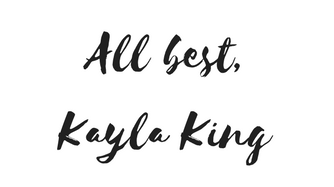For those of us for whom words mean everything, we understand how much growth, belief, and trust it takes to put forth our best writing into the world. In order to tackle such mammoth feats, we require people to help us see what’s working now, and what can be made better.
I know I am someone who stubbornly clung to the notion that this writer’s journey is one that needed to be traversed alone. This is something reasoned within myself for too long. However, since my time in the MFA, I’ve been reminded time and again of the good that can come from feedback.
Though it’s been some many years since I graduated from the Mountainview MFA, I now have the most amazing network of support from family and friends both near and far and fellow writers willing to put in the same amount of hard work day after day.
For the most part, the feedback I’ve received has been immeasurably beneficial, whether I make the suggestions into tangible changes or not. And in the time between studying writing before graduate school and now, I have also learned how to parse through feedback to ensure I’m not losing sight of my vision or voice.
All of this to say, I’ve become accustomed to receiving feedback and utilizing those comments and questions to better my work-in-progress. However, quite recently, I found myself feeling small. This is a rarity, one I’m rather proud to say hasn’t happened since my second semester of grad school.
But this month during a meet-up of writers, I found myself and my story and my knowledge insignificant. While this didn’t last much longer than an afternoon, I found it concerning. I struggled through the memory of the day on my drive home, and discovered why I felt as such. I’ve spent the following weeks working through this sense of alienation within myself.
During this meet-up, I brought Chapter 24 from my work-in-progress. It was a short chapter, one I had sectioned off from the chapter that followed to allow for the scene to breathe. It was filled with small character moments, but ones that were necessary. I read the chapter aloud while the other writers followed along. I knew almost immediately that I would have differing opinions with two of the writers at the table, however, I was not prepared for the misogyny, and did find myself startled at the amount of mansplaining that came from someone not writing or reading in my genre.
I suppose throughout the other writerly meet-ups I’ve attended in the area, I forgot how precarious a position it can be as a woman in her twenties surrounded by older men who assume they know more. It’s rare that I play the MFA card, as I know it is something that generates further conflict.
Thinking back, I could’ve said so many things, made use of my experience and credentials. In that moment, however, I found myself forgetting my strength, my voice; my ferocity as a female writer.
For the duration of my critique time, I listened to two men explain to me why, as someone seeking traditional publication, I needed to pay for editing services, though they couldn’t find any concrete examples of something being wrong with the chapter. And while there were other points made more specific to that chapter and my novel as a whole, it was this that infuriated me most of all.
I have done my research. I have queried before, and when the time is right, I will query again. I’ve had work published in the past and there will be more to come in the future. But somehow I found myself quiet. I didn’t argue. I just let them explain why they were right. And for the rest of the meet-up when one such man used a television series to justify head-hopping without understanding the difference between a limited point-of-view and omniscient narration, I felt like my knowledge wasn’t worth sharing.
By the end of the writing group, I left defeated. And as I went over the details, later sharing with trusted allies, I found myself angry that I let myself shrink in that situation. The last time such a thing happened, I remember clinging to the feedback. The best friend told me to leave the pages behind. And I did then. I knew that was what I needed to do again.
So that’s what I did.
I waited to pen this post until I had some time away. I can assure you, I’ve once again found my strength.
Now, you might be wondering what the point of critique is in situations like this. As writers, feedback helps us improve. I have had countless experiences where a question will help me unlock the secret to a messy chapter, where a reassurance will help me remember why I love still love this story after almost six years. But what’s more, I was reminded why I’ve curated a group of people to join me on this writer’s journey. This isn’t to say these people only offer praise and goodness. The reason why I appreciate my people so much is for their honesty, their instincts, their belief in both me as a writer and this story.
We all need those people to help us see where we can be better.
This is the lesson I take with me as I continue to work through the developmental edits for the work-in-progress and as I endeavor to provide feedback for other writers. I do not wish to make them feel small, but to help them see their strength, their promise, and the importance of their words. I think this same thing applies outside of writing. In a world filled with messes and mistakes and melancholy, we all need people to help us improve.







































